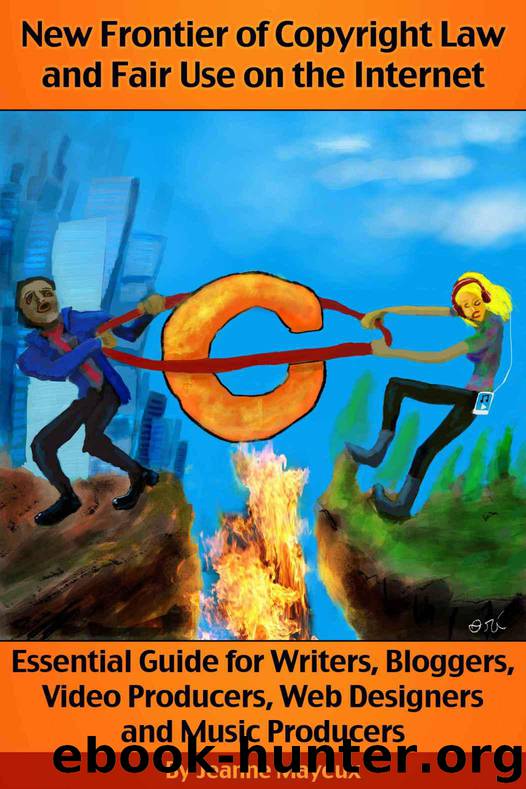New Frontier of Copyright Law and Fair Use on the Internet: Essential Guide for Writers, Bloggers, Video Producers, Web Designers and Music Producers by Jeanne Mayeux

Author:Jeanne Mayeux [Mayeux, Jeanne]
Language: eng
Format: mobi
Published: 2013-03-12T14:00:00+00:00
7.7
Layers of Rights Double Check the Public Domain Status
Just because Mozart’s symphonies are public domain does not mean the performance or the arrangement is. Most museums will charge licensing fees for images of public domain works that they own. The museum owner is not obligated to give you access to make a copy or take a photo even though the painting is in the public domain. Many museums place signs that condition entry on your agreement that you accept a "wrap contract" in which you agree essentially not to take photos or to use them only for personal use but not for other purposes that they can specify. Most museums will not allow you to take your own photo because they want to get paid to do this. Some museums levy administrative fees for the cost associated with handling the request, reproduction fees for the cost of reproducing the image and permission fees. They treat public domain works as a profit center. After you have jumped through all of their hoops and paid their fees the museum may insist that you sign a license agreement that restricts how you can use the copy. Stock photo companies demand payment of public domain works and charge licensing fees.
In 1999, the Bridgeman v. Corel case cited below, clarified the law and stated that photos of public domain artworks that are purely copies of the artworks are not under copyright protection. Museums still contend that this decision was for New York only. When a case is decided in a federal district court it usually becomes a governing law in all U.S. districts. Bridgeman v. Corel is considered to be in line with U.S. Copyright law. This is not a gray area of the law, an unadorned photo of a public domain image is not under copyright protection. The Constitution says that copyright can only be given to authors not to people who merely make a reproduction. Museums have avoided suing for infringement for fear of putting forward a test case that they are likely to lose.
Download
This site does not store any files on its server. We only index and link to content provided by other sites. Please contact the content providers to delete copyright contents if any and email us, we'll remove relevant links or contents immediately.
You Don't Own Me by Orly Lobel(1145)
Hello, My Name is Awesome by Alexandra Watkins(1084)
Intellectual Property Strategy by John Palfrey(1081)
Without Copyrights by Spoo Robert(977)
Democracy of Sound by Alex Sayf Cummings(961)
Profit From Your Idea: How to Make Smart Licensing Deals by Attorney Richard Stim(940)
World War 3.0 by Ken Auletta(903)
A Triumph of Genius: Edwin Land, Polaroid, and the Kodak Patent War by Ronald K. Fierstein(902)
The Trademark Guide by Lee Wilson(893)
Kafka's Last Trial by Benjamin Balint(845)
Data Protection: A Practical Guide to UK and EU Law by Carey Peter(838)
Patent It Yourself: Your Step-by-Step Guide to Filing at the U.S. Patent Office by Pressman David Attorney(822)
What They'll Never Tell You About the Music Business by Peter M. Thall(817)
Mass Media Law by Pember Don & Pember Don(811)
BVR's Guide to Intellectual Property Valuation by Michael Pellegrino(809)
Hello, My Name Is Awesome: How to Create Brand Names That Stick (BK Business) by Alexandra Watkins(809)
The Tech Contracts Handbook: Software Licenses and Technology Services Agreements for Lawyers and Businesspeople by David Tollen(793)
The Copywriter's Handbook by Robert W. Bly(784)
The New Censorship: Inside the Global Battle for Media Freedom by Joel Simon(768)
